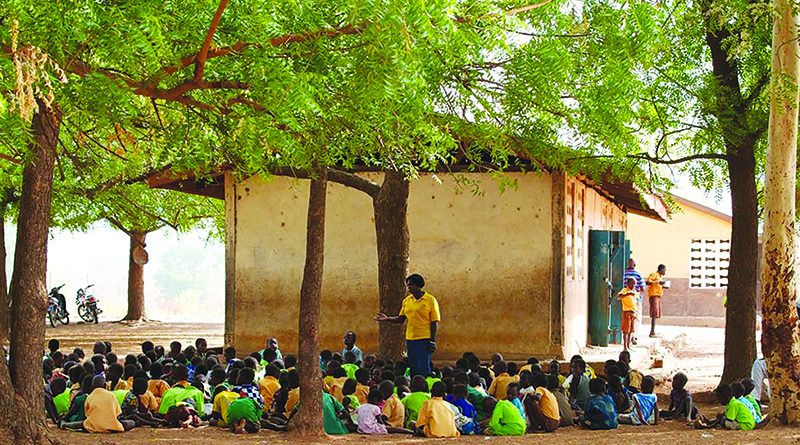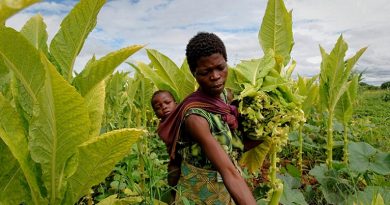Drivers of poverty in Malawi
By Titani Chalira*
In a minibus on my way to Zomba from Liwonde, those on board expressed their worries on the rising cost of living. The concerns I heard this day have been re-echoed by a random number of people in various spaces I have found myself in.
Relatively, it can be said that as a country we have not dealt with poverty convincingly. In most cases, people have had challenges to sustain their livelihood, afford better housing and get an education.
The various challenges that people have been lamenting over are a reflection of the current situation. But all this is not far much different from what people have had in the past. What is making people’s complaints to be more pronounced is the fact that they are dejected, after having their hopes whipped up by the Tonse Alliance administration on the campaign trail.
Considering that poverty seems to be a stubborn thing that has haunted us and remained in our midst for a long time; the most logical questions: are what is it and what drives it?
Justice Redson Kapindu in his writing about poverty reduction strategies on Malawi and Uganda noted that poverty is the restriction of opportunities for persons to pursue their well-being. Arguably, a good number of Malawians have restricted opportunities to pursue their well-being. Some have lost their jobs, others have been pushed out of business and generally the rising cost of living is making it hard for them to thrive.
While it is legitimate to apportion some blame on external factors like the Covid-19 pandemic for the shrinking economy and therefore a worsening ordeal of poverty, some of the challenges are emerging because of policy flip-flops. There is a suffocating tax regime that has made it hard for everyone to have opportunities of pursuing their well-being. Deliberate social protection measures have not been put across.
Amartya Sen defines poverty as the lack of basic human capabilities and the Office of the High Commission for Human Rights (OHCHR) goes further to list examples of basic human capabilities which include; adequate housing, adequate nutrition and adequate education.
From what has been going on in the country, people are being subjected to lack of better housing either because the houses are not available or for the few available they are inaccessible to a lot of Malawians whose earning capacity is in the doldrums.
For instance, people are constantly losing jobs because many employers cannot sustain a huge wage bill. This is because they are not ticking in an economy that is shrinking and has a punitive tax regime coupled with a crippling inflation rate. Some have been pushed out of business because of the same reasons.
The rising cost of living is rendering a lot of people destitute and it is very hard for them to manage to get food let alone adequate nutrition. Much of the food they can afford is mostly that which can make them get filled but it is of low quality in terms of nutrition.
It is not surprising to see in the media messages calling upon people to contribute either through big walks or other fund raising ventures. This is in order to bail out students who are struggling to pay tuition fees in most of the education institutions. Stories like these only show us the tip of the iceberg with regard to the struggles of access to an adequate education. Contrary to what was promised to the people during the campaign period.
Consequently, people are frustrated and what follows is the need to seek for the drivers of this poverty that has become so entrenched in our country.
To a greater extent our policy formulation and implementation practice does likely perpetuate the hardships that have been highlighted. But this is driven mostly by politics of patronage and some elements of the nature of traditional society.
In a working paper titled ‘Drivers for change’, it is asserted that in Malawi, politics of patronage take centre stage. Informal systems precede formal systems and the laws. This is because the leadership uses resources to manage people to pander to their whims. There is no distinction between state resources, party resources and private sector resources. So, to share the spoils policy makers are forced to align with short-term interests of the leadership.
Currently, appointing people to strategic government positions points to some level of patronage. Many of those appointed have been put there as an appeasement measure for their political capital. It has been revealed that some have found themselves holding positions irrespective of their being unqualified. Expectedly, policy directions championed by these appointees have considered much the appointing authority and not public interest.
Issues like high water tariffs, high electricity tariffs and punitive taxes are a result of policy that cannot be checked by the makers beforehand. Even if they were to find demerits in the same, their topmost consideration would be not to harm themselves by hurting the hand that has allowed them to enjoy the spoils.
With regard to the elements that emanate from the nature of our traditional society, the most prominent ones are the power matrix between a leader and subjects which is not balanced, the spirit of collectivism which manifests itself in the ‘tall-poppy syndrome’ or ‘hedge clipping syndrome’. Another prominent element is the dislike for uncertainty and aggression generally.
People expect their leader to know more than them and literally do things while they follow. The implication is that the leader ends up intolerant of people who constantly question or who try to exercise a certain level of independence. People also find it hard to be responsible and go an extra-mile to do their part.
The implications of the power matrix that is not balanced are even playing out in the current Tonse Alliance administration. Most of the frustrations are being directed to Dr. Lazarus Chakwera who together with his alliance partners are supposed to deliver on the promises they made on the campaign trail.
To respond and keep at bay these frustrations which are taken with a pinch of salt because as a leader he is not supposed to be questioned, there is a mushrooming group of regime enablers to do the job of justifying even weird things.
For example, a recent spate of trips the President undertook both foreign and local was justified regardless of the obvious costs that were incurred. The continued rising cost of living fuelled by the introduction of so many taxes without accompanying social protection measures is being defended probably because questioning leadership is not in our DNA.
People are also failing to be responsible on their part and do what is expected of them. Despite complaining about corruption and bad service delivery by most government entities, they worsen the problem.
Those in the frontline have a bad attitude towards their work and the excuse of lack of incentives for them to perform though valid is usually abused. Those on the receiving end of the services use whatever means including corruption to get what they want. They are not ready to help the government to end some of these malpractices.
There is also a predominant attitude to look at things collectively. What is called the ‘tall-poppy syndrome’ is the tendency to take off or deal with those that seem exceptional just like tall poppies are plucked out. It is also known as ‘hedge clipping’ which means the manner in which hedges are clipped to a uniform size. Any hedge that strays off or stands out becomes a victim.
Statutory corporations and other government entities have the tall-poppy or hedge clipping syndrome. Individuals or civil servants who are outstanding are forced to hibernate or join the band wagon of plunder. They are not expected to put up best policies and even if they were to do so by a stroke of luck implementation would be the problem.
The Affordable Inputs Programme (AIP), which is intended to help in bringing forth food security by providing farm inputs at a subsidised rate, looks like a mere cash cow. It seems to be one policy that is there to manage voters. There are exceptional individuals with expertise who have recommended better ways of bringing about food security; they have ended up being transferred to other departments or merely finished off in the tall poppy style.
It is also noted that Malawians have an attitude of disliking uncertainty and aggressiveness. Any sort of questioning of authority or suggestions that likely bring uncertainty, are construed as dissent. For instance, the Tonse Alliance administration has regime enablers that are making sure that criticism is parried away irrespective of validity in most cases and that is dangerous.
Poverty in Malawi has been driven by so many factors including politics of patronage, collectivism and aversion to uncertainty and aggression. These factors lead to the formulation of bad policies and laws. In some instances, they lead to failure to implement policies and laws. As a result poverty sets in.
*Titani is a freelance contributor to The Lamp magazine.



